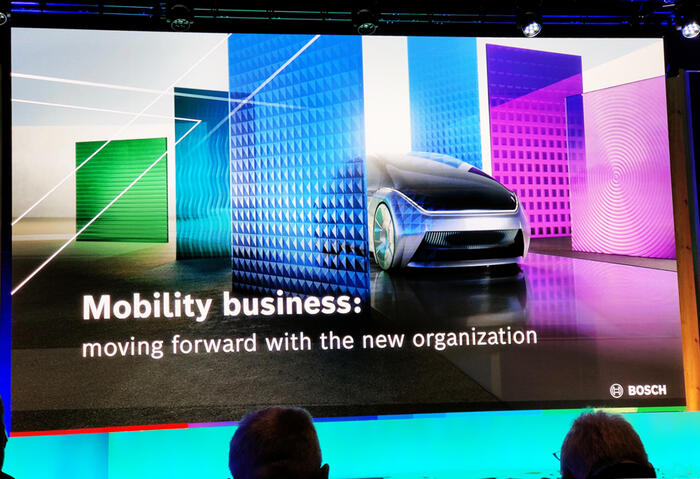What was outlined by Stefan Hartung, chairman of the board of directors of Bosch, and the other members of the board on the occasion of the annual conference on financial results in Stuttgart is a complex vision of the future of the automotive sector, and not only due to the difficulties of responding to the changes taking place.
In the mobility sector, which remains Bosch's main business with revenues of 56.3 billion euros in 2023, the company has made and is making strategic decisions to meet market needs but also to support future growth.
Confirming that this year alone Bosch will launch 30 projects related to electric vehicles, Hartung reiterated that "electromobility is now a reality but it remains to be understood how quickly it will arrive in various parts of the world".
According to estimates by the German innovation and services giant, approximately 71% of all new cars (including light commercial vehicles) in Europe will be totally electric by 2030.
But by then a hard core will remain represented by 22% of cars with ICE engine including those equipped with a 48 Volt hybrid system and 7% plug-in hybrids.
The perspective (which remains fundamental for a global group like Bosch) in China and the United States is very different. In the first case, electric vehicles will reach only 39% by 2030 with 32% of plug-in hybrids and 29% of ICEs, also 48 Volts.
In the United States, however, the situation should be slightly more oriented towards full electric compared to China. According to Bosch estimates, there should be 48% of BEV models in 2030, with 31% of ICE also 48 Volts and 21% of plug-in hybrids.
In particular for commercial vehicles that travel long distances - according to Hartung - "solutions such as plug-in hybrid and electric with range extender will be required for some time to come".
Bosch expects that in the Mobility business sector - alongside innovation on propulsion systems including the use of hydrogen - other important impulses will come from technologies connected with vehicle dynamics, from new generation braking systems for electrified vehicles and from autonomous driving in which Bosch is growing 10% per year, faster than the market.
In particular, a new model which "will be launched during 2024" will bring Bosch's innovative Vehicle Motion Management (Vmm) system into production for the first time.
This solution coordinates all kinetic aspects of the vehicle, controlling brakes, steering, propulsion and shock absorbers. Overall, sales of hundreds of millions are expected with VMM alone by 2030.
Bosch also confirmed its business forecasts in the hydrogen area with the prospect of a turnover that could reach 5 billion euros by 2030. "Last year - said Hartung - we launched the production of fuel-cell systems in Stuttgart, Germany and Chongqing, China."
At the same time, Bosch is working on hydrogen-powered ICE engines which represent the fastest way to eliminate the CO2 emitted in heavy road transport. “A hydrogen engine equipped with our injection technology will be on the road in India this year and we are already working on five production orders from major manufacturers in the world's three major economic regions,” Hartung said.
Bosch believes that the market for this technology will reach a value of almost one billion euros by 2030. Furthermore, the Stuttgart Group also wants to be a protagonist in the production of hydrogen: by 2030, in the world, there will be 170 gigawatts of capacity installed for electrolysis, approximately 25 times more than today.
“Our electrolysis stack is ready to enter the market next year,” Hartung said. "In the future, Bosch will no longer only stand for propulsion but also for hydrogen production. As a supplier we can help shape the future market."
During the event, forecasts for 2024 were added to the data on the 2023 financial year (which had already been communicated).
Revenues, last year at 91.6 billion, should grow in the range between 5 and 7 %. And despite the complex global situation, it is expected that the Ebit operating margin will arrive just below the 5.3% obtained last year.

